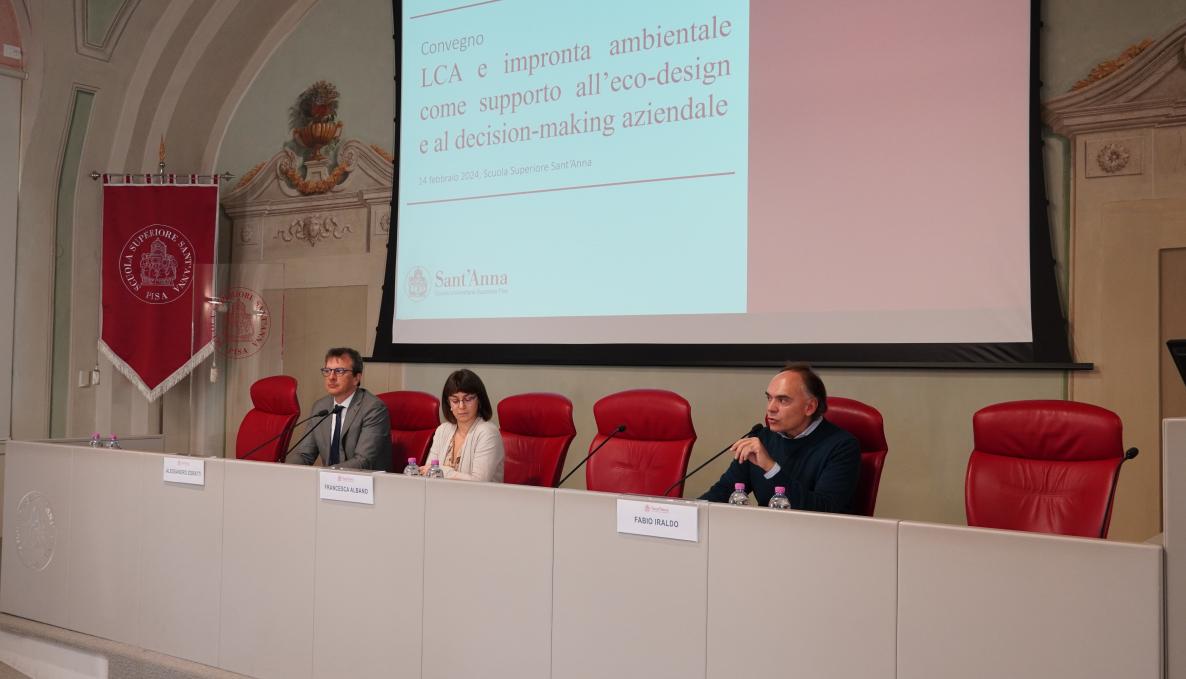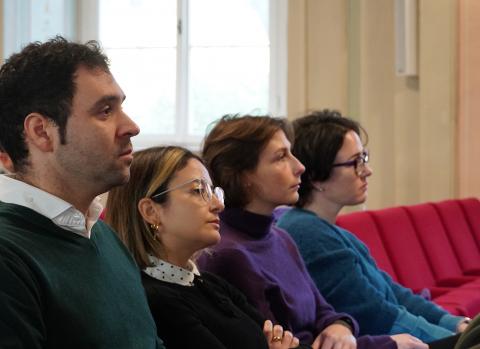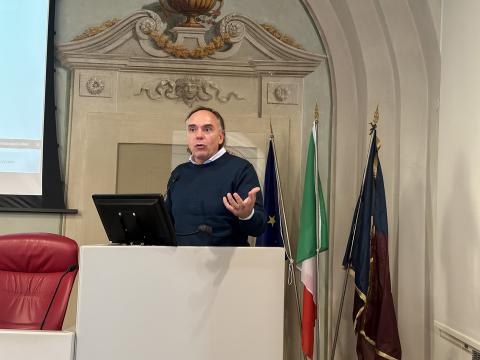LCA and environmental footprint: a support tool for companies and consumers. The the conference organized by the Institute of Management and the Interdisciplinary Research Center on Sustainability and Climate of the Sant'Anna School

LCA. Life Cycle Assessment: a method that evaluates the interactions of a product or service with the environment, considering its entire life cycle. This tool makes it possible to identify and quantify the environmental and energy impacts associated with a product, process or service at all stages of its life. This was the main topic of the conference 'LCA and environmental footprint as a support to eco-design and corporate decision-making', organised by the Institute of Management and the Interdisciplinary Research Centre on Sustainability and Climate at the Scuola Superiore Sant'Anna: an opportunity to take stock of how LCA is increasingly becoming a strategic and decision-making tool for companies.
Speakers at the conference included Fabio Iraldo, Full Professor at the Institute of Management of the Scuola Superiore Sant'Anna, Michele Galatola, DG Growth, European Commission, Silvia Grandi, Director General, Circular Economy Directorate of the Ministry for the Environment and Energy Security, Francesca Albano, Scuola Superiore Sant'Anna, Pisa, and Alessandro Zoratti, Director of Strategies and Sustainability at Trenitalia.
"LCA allows us to assess and measure the environmental footprint of products throughout their life cycle. It means identifying a whole series of parameters that relate to multiple environmental issues, from water footprint to resource consumption. This data should accompany the product like an identity card so that consumers, based on this information, are guided in making an informed choice of products," said Fabio Iraldo.
The conference also discussed a case study resulting from the collaboration between the Scuola Superiore Sant'Anna and Trenitalia: the company's saving of around 460 tonnes of C02 thanks to the r-Pet bottles that the lead company of the FS Group's Passenger Hub has decided to put on its trains to distribute instead of the previous bricks. These emissions would equal the Co2 absorbed over the course of a year by more than 60,000 trees, or the savings, water in this case, of about 111,000 m3, which would represent the volume of water consumed to fill 44 Olympic-size swimming pools.






